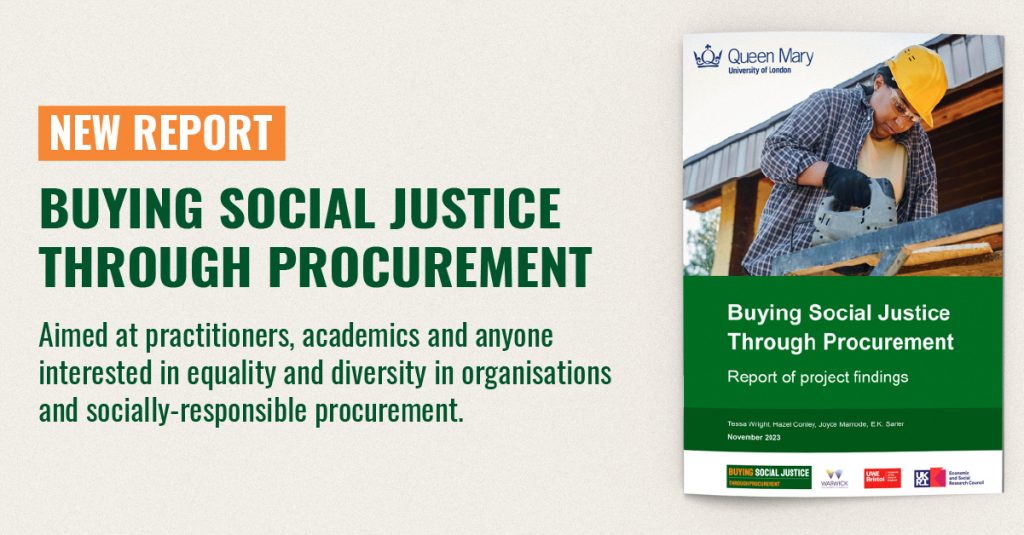Final report of Buying Social Justice research project published
The Buying Social Justice project has published its report on the findings of the two-year research project, written by Tessa Wright, Hazel Conley, Joyce Mamode and E.K. Sarter.
Buying social justice through procurement: report of project findings
The report summarises the main findings of the research, which investigated the use of public procurement to advance equality in employment in England, Scotland and Wales using mixed methods – expert interviews, a survey of procurement officers, good practice case studies and collaborative workshops.
It should be of interest to procurement practitioners, equality and diversity specialists, academics and anyone interested in equality, diversity and inclusion (EDI) in organisations and socially-responsible procurement.
Lead investigator Professor Tessa Wright, Centre for Research in Equality and Diversity, Queen Mary University of London said:
“We are delighted to publish the results of our two-year research project examining how public procurement is being used across local authorities, housing associations and universities in England, Scotland and Wales to promote social justice. We found great examples of good practice, which are showcased through the nine case studies, which we hope will inspire others to think about how their procurement activities could achieve social and equality goals for their communities. We are also keen for EDI experts – practitioners and academics – to consider procurement as an important lever for advancing equality.”
The report complements the toolkit launched by the project in October, providing details of the research findings that underpin the guidance in the toolkit. The toolkit has been well received and has attracted many downloads.
Buying social justice through procurement: an equality and diversity toolkit
The project team is very grateful to all those who helped with the research, especially those who took part in expert interviews, case studies, the survey and collaborative workshops, as well as members of the project advisory board who provided guidance and support.



